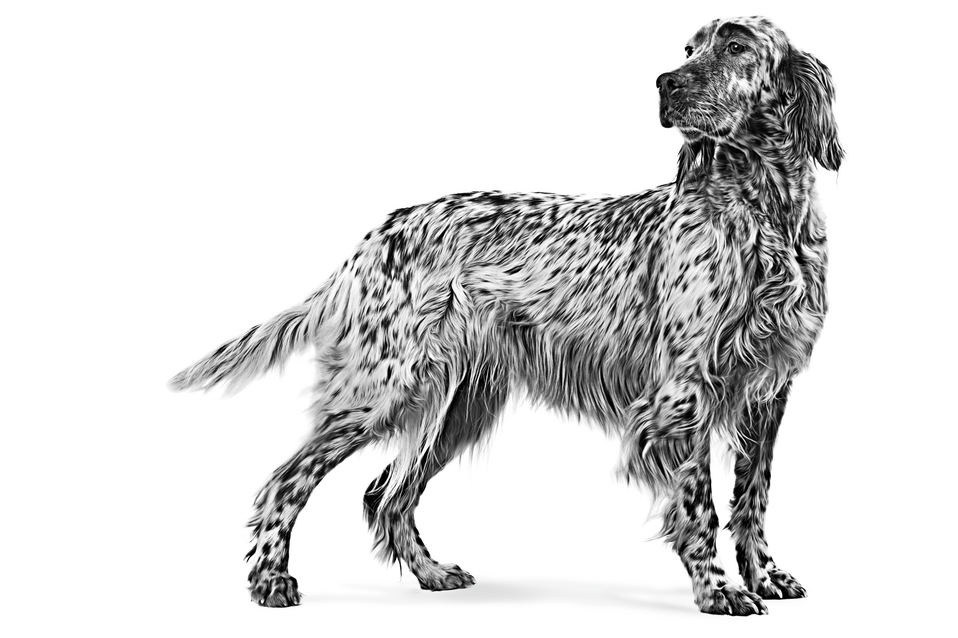Treating the Canine Chronic Enteropathy Patient (advertorial)
31 Jul 2024
Dr Luke Johnston
FANZCVS (SAM) BVSc (Hons) MANZCVS (SAM)
Registered specialist in Small Animal Medicine
President ANZCVS Small Animal Medicine Chapter
Advanced Vetcare, Melbourne
Canine chronic enteropathies can be some of the most difficult patients to manage. There are some handy tricks or hacks that can be utilised to best approach these patients.
- Most dogs will be diet responsive. 50-65% of them will respond to a diet change that can be managed long-term. Diet choices are typically hydrolysed or novel protein based.1,2
- We cannot determine which patient will be food-responsive or immune-suppressive-responsive before treatment trials. Dogs with food-responsive enteropathies however, tend to be younger and have less severe clinical signs.2
- Diet trials are recommended for 2 weeks. In this period, we should see some response to diet, however, the maximum response may not be seen for 4-6 weeks. This short trial period ensures owner compliance.2
- Generally hydrolysed diets such as (Royal Canin Hypoallergenic) or novel protein diets are chosen. There is some evidence that dogs may respond better to a hydrolysed diet over a novel protein diet.2
- If there is failure of one diet, another diet should be attempted. Failure of that diet should prompt a third diet trial. There is evidence that dogs may respond to the second or third diet trial.1,3 Don’t give up on diets!
- Often these dogs feel nausea so the addition of anti-nausea medications such as maropitant and ondansetron can help acclimate dogs to the new diet. Appetite stimulants may also be of benefit to help the transition.
- Some dogs may respond initially to a highly digestible, balanced, intestinal-focused diet such as Royal Canin Gastrointestinal Low Fat. One study, however, did show that a longer remission was noted in patients on hydrolysed diets compared to a general intestinal diet.5
- Some patients that initially respond to a hydrolysed diet may be able to transition back to a balanced, high-quality diet. Previous studies have documented a relapse rate of 29% with this approach. Personally, to avoid the risk of relapse and the implications of microscopic impacts, once the patient responds to a hydrolysed diet I would continue on this diet long term.6
- Protein-losing enteropathy is a specific type of chronic enteropathy for which there can be many causes. These patients can often have severe clinical signs and have low albumin on serum biochemistry. 65-70% of these patients should respond to a diet change.7,8 The diet of choice is typically an ultra-low-fat diet. Royal Canin Gastrointestinal Low Fat Wet food is the lowest-fat commercially available high-quality diet on the market.
Remember when dealing with a chronic enteropathy to rule out the look-a-like syndromes such as Hypoadrenocorticism (Addisons disease) in dogs. Every patient with chronic intestinal signs should have a Vitamin B12 (Cobalamin) checked and if low should be supplemented. Low cobalamin is a negative prognostic indicator in many chronic enteropathies.9
Remember other factors of diet that may assist these patients such as the addition of fibre (in particular for patients with colitis) such as psyllium husk or the transition to high-fibre diets (e.g. Royal Canin Gastrointestinal High Fibre). Fibre along with probiotics and faecal transplants can assist the manipulation of the microbiome that is often imbalanced in patients with chronic enteropathies.2
References:
1. Dandrieux J, Martinez Lopez LM, Prakash N, Mansfield CS. Treatment response and long term follow up in nineteen dogs diagnosed with chronic enteropathy in Australia. Aust Vet J. 2019 Sep;97(9):301-307.
2. Jergens AE, Heilmann RM. Canine chronic enteropathy-Current state-of-the-art and emerging concepts. Front Vet Sci. 2022 Sep 21;9:923013.
3. Schramm A, Kook PH. A Descriptive Study on the Extent of Dietary Information Obtained during Consultations at a Veterinary Teaching Hospital. Animals (Basel). 2022 Mar 6;12(5):661.
4. Mandigers PJ, Biourge V, van den Ingh TS, Ankringa N, German AJ. A randomized, open-label, positively-controlled field trial of a hydrolyzed protein diet in dogs with chronic small bowel enteropathy. J Vet Intern Med. 2010 Nov-Dec;24(6):1350-7.
5. Allenspach K, Wieland B, Gröne A, Gaschen F. Chronic enteropathies in dogs: evaluation of risk factors for negative outcome. J Vet Intern Med. 2007 Jul-Aug;21(4):700-8.
6. Nagata N, Ohta H, Yokoyama N, Teoh YB, Nisa K, Sasaki N, Osuga T, Morishita K, Takiguchi M. Clinical characteristics of dogs with food-responsive protein-losing enteropathy. J Vet Intern Med. 2020 Mar;34(2):659-668.
7. Rudinsky AJ, Howard JP, Bishop MA, Sherding RG, Parker VJ, Gilor C. Dietary management of presumptive protein‐losing enteropathy in Yorkshire terriers. J Small Anim Pract. 2017;58:103‐108.
8. Kather S, Grützner N, Kook PH, Dengler F, Heilmann RM. Review of cobalamin status and disorders of cobalamin metabolism in dogs. J Vet Intern Med. 2020 Jan;34(1):13-28. doi: 10.1111/jvim.15638. Epub 2019 Nov 23.
